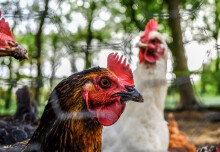

Flu Fighters
Gene-edited chickens show promise in fight against bird flu
Scientists have successfully used gene editing techniques to limit the spread of bird flu in chickens.



Gene-edited chickens show promise in fight against bird flu
Scientists have successfully used gene editing techniques to limit the spread of bird flu in chickens.


Easier diagnosis of childhood fever using a new rapid blood test
A simple blood test which may be able to rapidly diagnose the cause of a child’s illness could be ‘transformative’, say researchers.


Feature
‘When I think about the burden of sickle cell disease - it keeps me up at night’
For World Sickle Cell Day we interview Prof Julie Makani on her career so far, African science and the growing interest in Sickle Cell Disease.


Feature
Faculty of Natural Sciences explores transforming science into innovation
Professor Sir Shankar Balasubramanian delivers this year's lecture: “We could see a way to sequence the scale of a human genome in a matter of days.”


Genetics may explain rare heart inflammation in some young people
Gene abnormalities may make some people more susceptible to myocarditis, a rare type of heart inflammation that can affect young people and athletes.
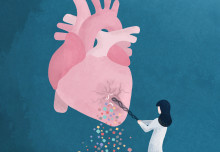

New insights into the genetic defects that lead to heart failure
Individual genetic defects lead to heart failure in different ways, highlighting potential biomarkers for targeted treatment.
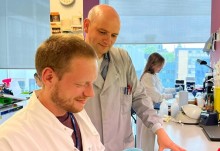

Fashion industry collaboration to create lab-grown fur
Luxury fashion house Fendi, part of LVMH, wants a sustainable alternative to fur. Researchers from Imperial and Central Saint Martins are on the case.


Yeast cells converted to ‘mini factories’ to make dementia drugs
What do brewers, bakers and now drug researchers have in common? They all rely on a little help from yeast to get the job done.
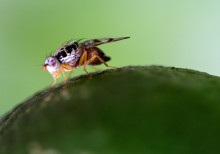

Major fly pest genetically modified in the lab to produce more males
Mediterranean fruit flies, an agricultural pest, have been modified in a lab experiment so more males are born than females, reducing their numbers.
 1
1
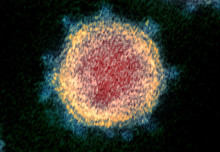

Imperial leads new consortium to study threats from new SARS-CoV-2 variants
Imperial researchers will lead a new consortium of UK virologists to study the effects of emerging mutations in SARS-CoV-2.